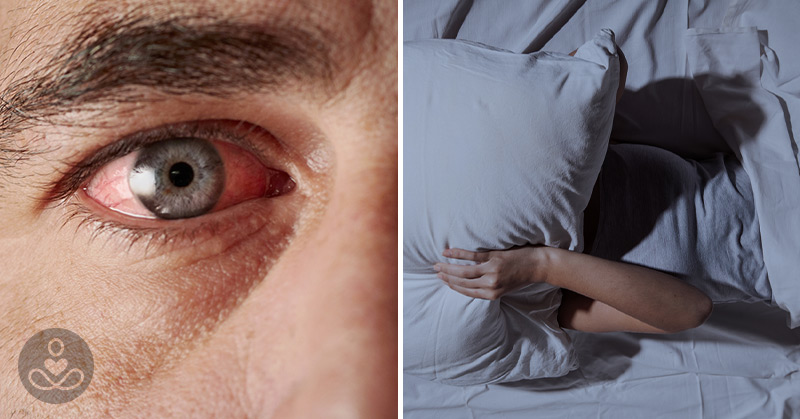If there was one thing you could do to improve all aspects of your life, one thing that would improve everything else in a profound way…would that intrigue you?
We focus so much on yo-yo diets, calorie counting, fitness trackers, and finding the latest lifehacks on social media, that we end up overlooking the one thing that could have an immeasurable impact on the quality of our lives, and is simple to do. Sleep.
August 27th, 2018 Update: In an interview with the New York Times, technology giant Elon Musk admitted to personally suffering from the effects of exhaustion because of his demanding career. “It’s not been great, actually. I’ve had friends come by who are really concerned.”
Since then, Huffington Post founder, Arianna Huffington wrote an open letter to Musk in response to his admission:
“As you told the New York Times, you’ve exhausted yourself working 120-hour weeks at the expense of seeing your children and your friends. You’ve had days-long stretches where you shut yourself inside the Tesla factory and don’t even go outside. You don’t take vacations. There’s no way you can connect with your amazing vision and creativity when you don’t give yourself time to reconnect not just with those you love but also with yourself and your wisdom.
This is not about working hard — of course you’re always going to work hard. It’s about working in a way that allows you to make your best decisions.”
The Importance of Good Sleep
If you don’t already do everything possible to optimize your sleep, you’re wasting time trying to hack the rest of your life. I’m not talking about being perfect. There will be the odd late night party or work project, but when they become the rule instead of the exception, you’re setting yourself up for issues in the long-run.
Even if you stray from your circadian rhythm (i.e., sleep cycle) for one night, you throw your body into a frenzy. Like a music conductor that eats a sandwich during a concerto, getting out of sync messes with your flow.
From heightened brain function, to increased alertness, brain detoxification, and a bolstered immune system, sleep is the one thing we need to get right.
Most experts say we should aim for seven to nine hours of sleep. For a quick test to understand your sleep needs, go to sleep and wake up without an alarm clock for a few days. Averaging out how much you slept will provide a good target for the amount of sleep you need, and help you qualify what ‘lack of sleep’ means for you.
Symptoms of Sleep Deprivation
If you’re consistently getting less than your sleep target, you may be sleep deprived. Sleep deprivation is easy to notice, but you need to pay attention to the signs: [1]
- Chronic fatigue
- Feeling groggy or cranky
- Getting sick on a regular basis
- Trouble concentrating or completing tasks
- Weight gain
And the symptoms are the least of your worries.
Much like the canary in the coalmine, chronic sleep deprivation has a debilitating impact on your mind and body. Over time you can develop metabolic syndrome, a condition brought on by chronic inflammation in the body. Metabolic syndrome is a key cause of heart disease, insulin resistance leading to diabetes, and excessive weight gain.
Sleep deprivation’s effects are also felt in the brain, where hormonal imbalances may lead to depression and anxiety. Many believe society’s mental health crisis to be heavily influenced by our inability to get ample sleep.
Lastly, how we deal with our ‘lack of sleep’ is falling short. A National Health Institute study of prescription sleeping pills showed their extremely marginal benefits (on average only minutes of improvement per night) versus a placebo. We’re trying to medicate our way to sleep, which is not only unhealthy, it’s futile. [2,3]
How to Sleep Longer and More Effectively
The great news is that there are several easy habits you can begin to practice that will give you the best odds at combatting a poor sleep routine. Here are a few that have the potential to improve not only your quality of sleep, but your quality of life:
- Black out your bedroom: the blue spectrum of light suppresses melatonin, our sleep hormone. Artificial light contains this wavelength, making us more alert. Alarmingly, even the smallest amount of light can have a negative impact on sleep, even when our eyes are closed. Ensure that no light can enter your room when you sleep.
- Avoid electronic or other artificial light within 60-90 minutes of bedtime: it can take up to 60-90 minutes for melatonin levels to recover after being exposed to artificial light, including that of your electronic devices. Many devices now have sleep settings that filter out the melatonin-suppressing wavelengths.
- Wind down before bed: a busy brain makes for a bad bedfellow. Calming the brain down before bed is crucial if you want to enter a deep sleep. Reading to candlelight, meditating, or a 5-10 minute deep breathing exercise, are all effective ways to quiet the mind.
- Maintain a routine: as it pertains to sleep, your body loves routine. While we are all different chronotypes (i.e., the propensity to sleep at a certain time), it’s the routine that’s important. While getting out of sync may happen now and again, be aware that even one night can throw your rhythm off for days. Try to avoid disturbing this routine by more than 1-hour in any direction
- Cool down your bedroom: your body temperature tends to dip when you sleep. Lowering the temperature in your bedroom can mimic this temperature shift, making it more comfortable to sleep
While I’m not a proponent of being dependent on supplements, there are a couple of supplements that may help you sleep, as you make the other changes above:
- Try magnesium. This has been shown to combat insomnia. Magnesium helps us get back in the rest-and-relax mode, reducing restlessness before sleep. [4,5]
- Supplement with melatonin. Exposure to artificial light before bed can suppress melatonin up to 90-minutes after the lights are off. Melatonin deficiency can compromise our immune system, and short-circuit the critical bodily processes that occur during our slumber. Supplementing with melatonin may help offset this deficiency, helping us get to sleep faster. Be sure to speak to a qualified professional to determine the proper dosage.

Sources
- https://www.healthline.com/health/sleep-deprivation/effects-on-body
- https://www.health.com/health/gallery/0,,20906153,00.html
- https://www.theatlantic.com/health/archive/2013/12/how-sleep-deprivation-decays-the-mind-and-body/282395/
- https://www.ncbi.nlm.nih.gov/pubmed/23853635
- https://www.ncbi.nlm.nih.gov/pubmed/27933574

